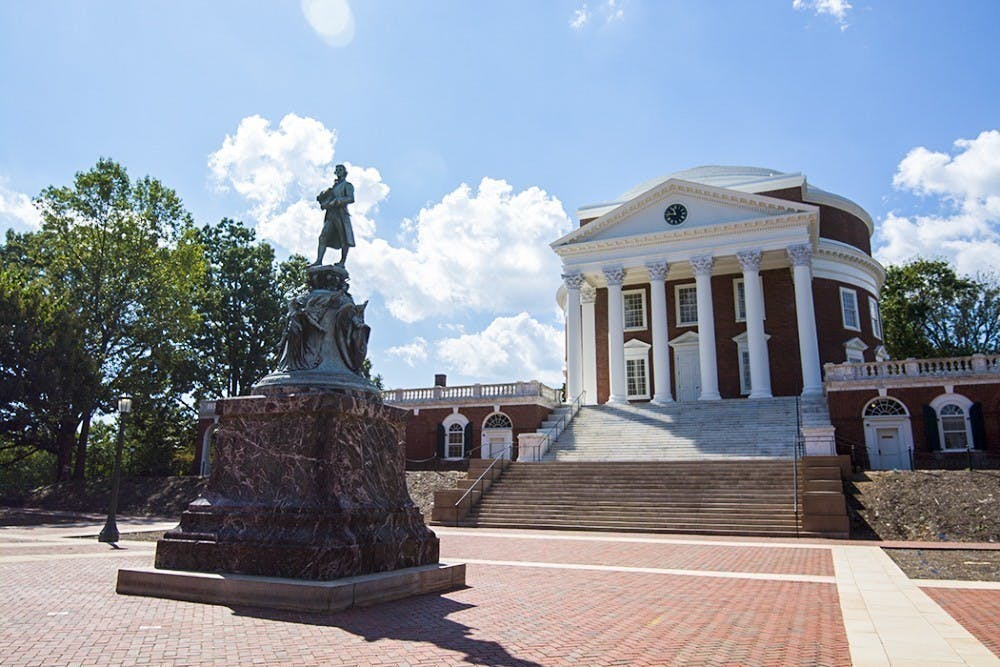Lea en español
I am a graduate of the University’s School of Architecture, Master of Architecture 2007 and Master of Landscape Architecture 2008, and I majored in Sculpture at VCU, BFA 1993. Space and the physical world matter to me — and justice matters too. I am opposed to the proposal — recently approved by the Building and Grounds Committee of the Board of Visitors on the recommendation of the Naming and Memorials Committee — to provide only “digital contextualization” for the University’s statues and memorials.
This proposal is problematic for a number of reasons. At the most practical level, this kind of electronic interpretation is notorious for failing and never being repaired. It will be out of date within a few years, and not everyone has the necessary equipment. Much worse is what is says at the conceptual level — it's quite literally an afterthought. The Naming and Memorials Committee Report takes pains to pay respects to the “architectural value and beauty” of Grounds, and cautiously allows for “judicious addition of further markers.” It is well known that there is a lot of competition for space on Grounds, and deep attachment to the memorials and statues that already exist. But how can you claim to seek objectivity, authenticity and truth while at the same time essentially saying one point of view — the white male supremacist one — got here first? “The landscape is too full now to physically incorporate a balanced and fulsome history, so that will have to be virtual.”
The University has gotten a good start at recognizing its founder’s history as an enslaver and addressing the racist views of the namesakes of many of its buildings. It has done almost nothing to acknowledge the original stewards of the land it sits on — the Monacan people. In his Notes on the State of Virginia, Thomas Jefferson describes watching Indigenous people holding a ceremony around an earthen mound not far from what would eventually be Grounds. Later, he dug this mound up, by some accounts setting the stage for modern archaeology. And yet today’s Native American and Indigenous Studies group is continually rebuffed in its requests for space beyond the virtual. Jefferson owned people and was also a settler colonist — he displaced people who had lived on this land for millennia, and his Academical Village excluded their descendants for almost two centuries. How can a history so embedded in place be successful without a real physical presence?
Contextualization needs to be holistic, and it needs to take up actual space. I know that there is no universal set of “Indigenous values,” but I also know that the settler-colonizer abstraction and disconnection from the land is a European, capitalist import. It is so ingrained we think it's normal and acceptable. To offer only a digital contextualization is to assert the primacy of technology and play into this detachment and commodification of the land.
President Ryan has indicated that the current location of the George Rogers Clark statue, thankfully slated for removal, may support improvements to the adjacent road intersection instead of the Indigenous Studies Center advocated by Anthony Guy Lopez, M. Anthropology ’09, and NAIS. I would suggest that instead of a patch of asphalt, we create a figurative turning lane away from the University’s white supremacist past by making room for physical acknowledgements of the full range of stakeholders in an inclusive future for our venerated University.
Zoé Edgecomb is a graduate of the University’s School of Architecture, Master of Architecture 2007 and Master of Landscape Architecture 2008.







